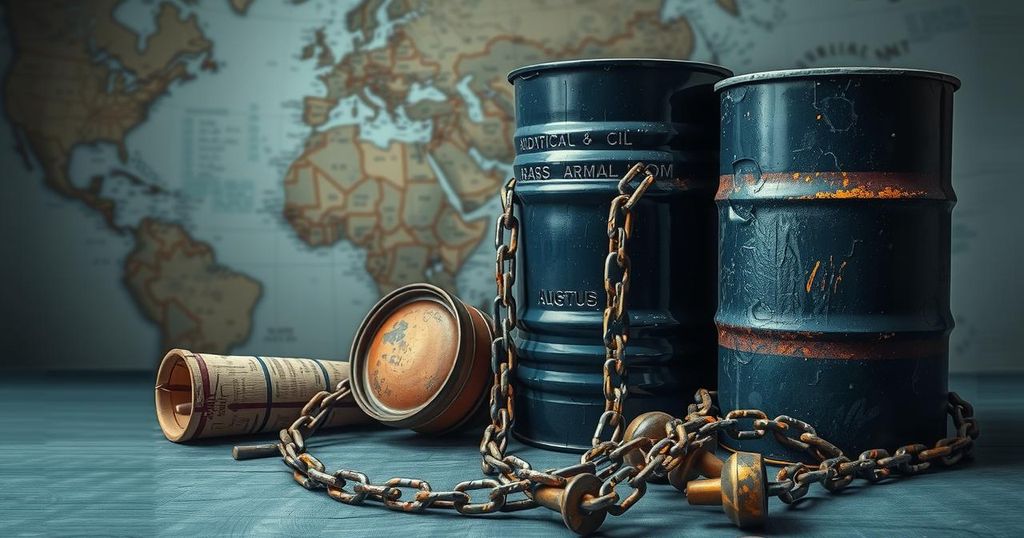UK Imposes New Sanctions on Russia Amid G7 Summit to Pressure Putin

The UK has sanctioned 30 new Russian entities to pressure Putin during the G7 summit. This includes individuals, military operations, and businesses connected to Russia’s war effort. Prime Minister Starmer emphasized the need for ongoing sanctions as Ukraine’s President seeks direct talks with Putin, who hasn’t shown willingness to engage.
In an ongoing effort to bolster pressure on Russia amidst its invasion of Ukraine, the UK government has introduced new sanctions targeting 30 Russian entities. This move comes as Russian President Vladimir Putin remains firm in his stance against a ceasefire. As the G7 summit unfolds in Canada, these sanctions highlight the UK’s commitment to intensifying measures against Russia’s financial, military, and energy sectors.
Among those sanctioned are UK nationals Vladimir Pristoupa and Olech Tkacz, who allegedly ran a network of shell companies linked to over $120 million of electronics supplies to Russia. These sophisticated electronics are reported to play a critical role in supporting Russia’s military initiatives. Additionally, new sanctions extend to the Russian Defence Ministry branch responsible for underwater intelligence, twenty oil tankers, and three companies assisting Russia’s energy sector.
British Prime Minister Keir Starmer emphasized, “These sanctions strike right at the heart of Putin’s war machine, choking off his ability to continue his barbaric war in Ukraine.” He asserted the UK would not relent in ramping up pressure on Russia as the situation evolves. Starmer acknowledged the severe nature of Russia’s threat, taking initiative to protect the nation’s security.
Foreign Secretary David Lammy supported the Prime Minister’s stance, stating, “With his continued attacks and needless bloodshed, it is clear that Putin has no interest in peace.” He mentioned that today’s actions signal a commitment to dismantling Putin’s maritime resources and sustaining support for Ukraine’s defenses. Lammy’s remarks reflect a broader criticism of Russia’s aggression and indicate ongoing UK allyship with Ukraine.
Meanwhile, the UK plans to further reduce Russia’s oil revenue by adjusting the oil price cap in coordination with other nations. In light of this, Ukrainian President Volodymyr Zelensky has welcomed a US-endorsed ceasefire initiative and expressed a willingness to engage in talks directly with Putin; however, so far, it seems there’s no reciprocal interest from the Kremlin.
In summary, the UK’s introduction of new sanctions demonstrates a firm stance against Russian aggression, pressing ahead as global dialogue around the conflict continues. With potential adjustments to the oil price cap, the pressure on Russia’s economy is expected to intensify, as the call for Ukraine’s support remains paramount in these turbulent times. The diplomatic paths forward, however, appear still largely obstructed as leaders navigate the complexities of war and peace negotiations.
The UK government has imposed new sanctions on thirty Russian targets to increase pressure on President Putin amid his persistent refusal to consider a ceasefire in Ukraine. These sanctions aim to cripple Russia’s financial and military capabilities while supporting Ukraine. With concerted efforts to tighten oil revenue caps, the pressure on Russia is projected to grow, yet prospects for diplomatic engagement remain unclear as the international community continues to monitor the situation.
Original Source: gna.org.gh







